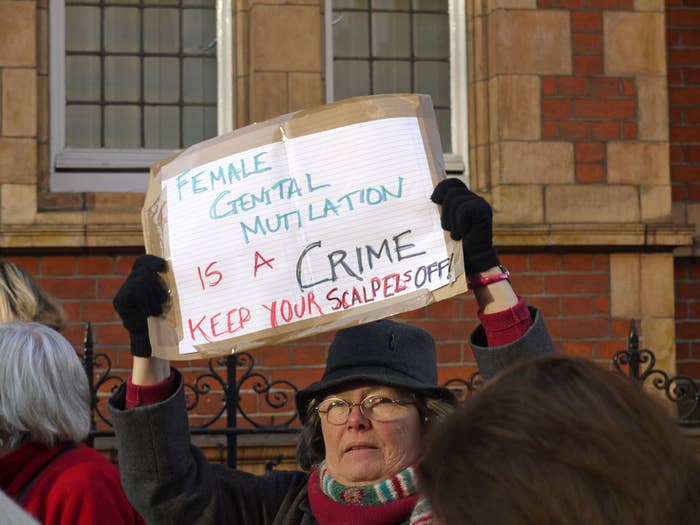
MPs say it is “beyond belief” that, more than 30 years after female genital mutilation was made illegal in the UK, there has been not one successful prosecution.
In a scathing report published on Thursday, the home affairs select committee said there was an ongoing failure to tackle the “national scandal” of female genital mutilation (FGM). The current “lamentable record” would need to be improved in order to encourage people to come forward, the committee said.
FGM was first outlawed in the UK in 1985 and since then there has only been one trial, which did not result in a conviction.
In the report, Detective Chief Superintendent Gerry Campbell, the deputy national police lead on FGM, said there had been over 152 referrals since 31 October 2015 from regulated professionals. In most cases, the procedure was done abroad but statistics from July revealed that 18 cases took place within the UK.
The committee found that many NHS doctors are not complying with new requirements to report suspected incidences of FGM, meaning it is hard to tell the true scale of the problem. However, available evidence suggested the majority of cases took place in London and some studies suggested over 100,000 women are currently living with FGM in the UK.
"FGM is not a religious or cultural rite of passage that deserves protection," the MPs concluded. "When it is inflicted on a woman, it is a horrific crime. When it is inflicted on a girl, it is violent child abuse."
But they said there was still not enough being done or enough resources provided to make a difference, especially when it came to checking individuals returning to the UK from abroad.
The MPs have called for a streamline of departmental FGM services, stronger
sanctions for those who don't report an FGM case, and better intelligence for airside Border Force officers in order to reach the government’s goal to eradicate FGM “within a generation”.
Simon Blackburn, chair of the Local Government Association’s Safer and Stronger Communities Board, has said that more funding and resources are needed or the efforts to prevent FGM will fail.
Blackburn said: “It is crucial that health trusts and GP practices continue to submit FGM attendance records to help build reliable and accurate figures reflecting the prevalence of FGM across the country."

Tim Loughton, interim chair of the home affairs committee, said: “FGM can leave women and girls with significant lifelong health and psychological consequences. We intend to continue to draw attention to this horrific crime to improve the safeguarding of at-risk girls.
“We are dismayed that there have been no convictions for FGM-related offences. When we next review FGM, the new laws against the practice will have 'bedded in' and we expect to see a number of successful prosecutions.
“We welcome many of the steps that the government has taken to prevent FGM and our report calls for that work to be enhanced and strengthened with adequate resources and support for frontline professionals and other groups which work directly with practising communities.”
